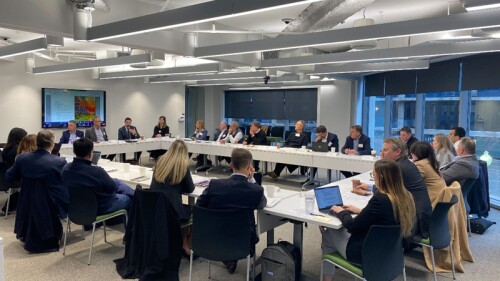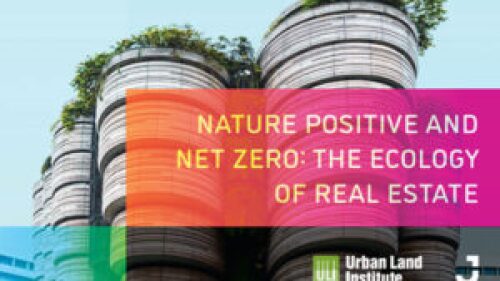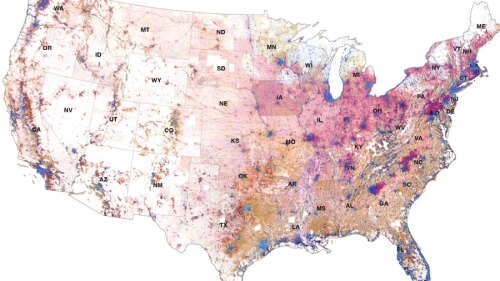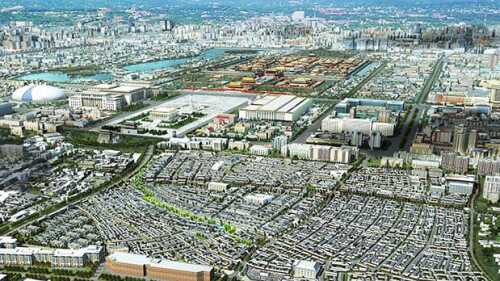Environmental, Social, and Governance (ESG)
Texas Southern University professor and environmental justice advocate to receive ULI Prize for Visionaries in Urban Development.
In September 2022, ULI honored architect Jeanne Gang with the ULI Prize for Visionaries in Urban Development. Gang is the founding principal and partner of Studio Gang, an architecture and urban design practice based in Chicago, with offices in New York City, San Francisco, and Paris.
Asia Pacific asset owners are just beginning to grapple with decarbonization and how to factor transition and climate risks into their valuations; even so, some markets and investors are already ahead of the pack. This topic was discussed as part of a recent ULI Asia Pacific webinar, part of a series looking at decarbonization.
The first ULI Executive Convening on Embodied Carbon—held on January 17th at ULI’s headquarters in Washington, D.C., and hosted by ULI’s Decarbonization Program—launched the first of many convenings to build stronger partnerships across the industry enabling accelerated advancement on sustainability improvements and beyond.
A ULI webinar in December focused on the role of commercial real estate in fulfilling the vision of the United Nations’ Conference of the Parties 27 in Sharm el-Sheikh, Egypt, with leading companies pledging to net-zero operations as soon as 2025.
Longtime ULI Trustee A. Eugene (Gene) Kohn has been elected a Life Trustee by the Institute’s Global Governing Trustees, the first architect to receive the honor.
The ULI/Allen Matkins Capital Markets Roundtable, now in its eighth year, brings together investors, developers, lenders, managers, and intermediaries to share insights and perspectives on the current and future outlook for real estate capital markets. topics discussed included which sectors of the market are strong, which should be avoided; and what the thoughts and strategies of some major players in real estate financing and investing are for the coming year.
Stakeholders across the real estate value chain are increasingly recognizing that the climate crisis and biodiversity loss are deeply interlinked, and one issue cannot be solved without addressing the other. However, solutions are ready and available for real estate to implement today, according to a new report out of ULI’s Greenprint Center for Building Performance: Nature Positive and Net Zero: The Ecology of Real Estate, sponsored by Jacobs.
ULI has been establishing dialogue between real estate professionals and climate risk data analytics firms that can help advance the interests of both parties. Enhanced collaboration and understanding between these two sides should continue to improve this evolving space, potentially improving both financial and climate-risk outcomes. As part of these efforts, ULI collaborated with First Street Foundation, a research and technology nonprofit with expertise in assessing physical climate risk at the property level in the United States.
The ULI Greenprint Center for Building Performance announced today that four more of its real estate members have aligned to ULI Greenprint’s net zero carbon operations goal. These real estate leaders join the 30 members who have already adopted this goal to reduce the carbon emissions of their collective portfolio under operational control to net zero by the year 2050. The four members newly committed to net zero emissions are Bridge Industrial, Prologis (by 2030), Shorenstein Realty, and Unico Properties.
A recent ULI webinar explored how property managers must engage their tenants to achieve carbon reduction and other building-wide goals driven by environmental, social, and governance initiatives.
Technology and contributions from all stakeholders will be crucial if Asia’s cities are to meet their net zero targets. Earlier this year, a series of three webinars organized by ULI China Mainland covered the efforts and challenges of several cities and organizations around the world to give some focus to the efforts in Beijing, which is one of the cities in ULI’s Net Zero Imperative initiative. The discussions also focused on the Chinese capital as well as Hong Kong and Singapore.














